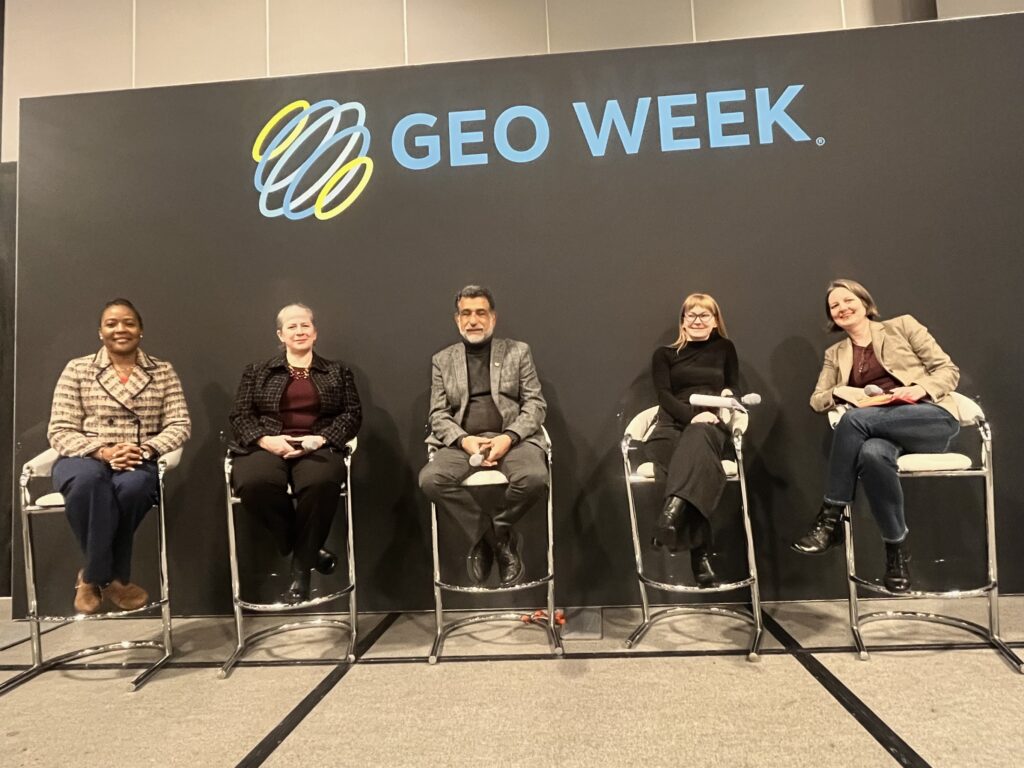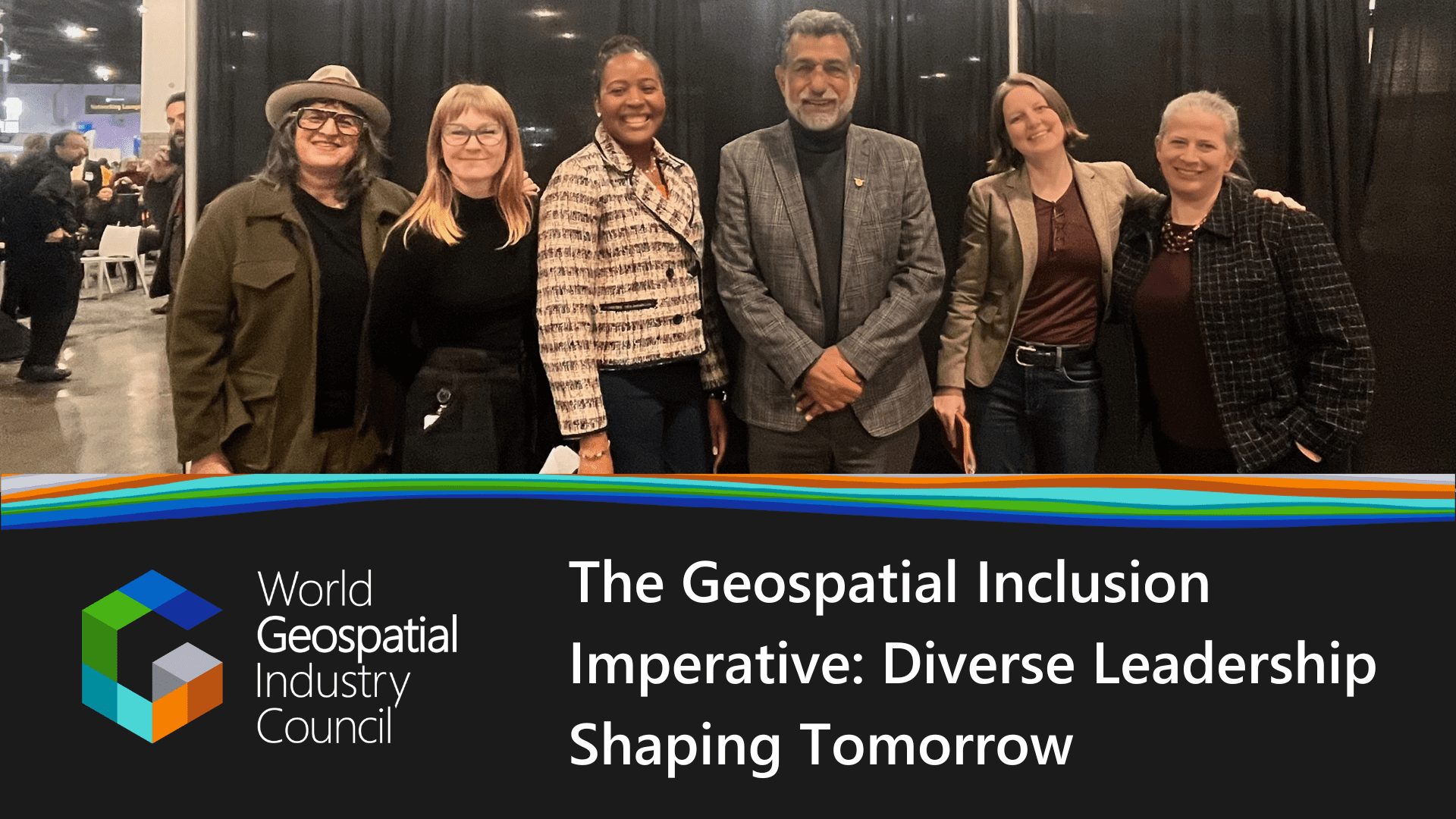The geospatial industry faces a pressing need to integrate diversity, equity, and inclusion (DEI) principles to cultivate a more representative workforce, address systemic inequalities, and ensure equitable access to opportunities for everyone. Early exposure initiatives that introduce geospatial technology to a broad spectrum of learners are essential to dismantle socioeconomic barriers and foster an inclusive workforce that brings the diversity of thought required for geospatial innovation. Even as mentorship initiatives are challenging the traditional hierarchies, efforts are underway to enhance equitable access for underrepresented groups through scholarships, internships, and mentoring programs.

Recognizing the field’s global nature, DEI strategies must be adaptable to diverse cultural contexts. Following this imperative, WGIC hosted the “Geospatial Inclusion Imperative: Diverse Leadership Shaping Tomorrow” panel at Geo Week 2024 in Denver, featuring industry experts and DEI practitioners from GeoTechVision, Woolpert, Geo Week, Hexagon, UMass Global, and University Consortium for Geographic Information Science (UCGIS).
Early Exposure to Geospatial – Key to Diverse Workforce
The role of early education in fostering a diverse future for the geospatial industry is critical. It sets the stage for cultivating a talent pool with diverse perspectives, vital for driving geospatial innovation. “Introducing young minds to the power of geospatial technology can transform their worldview and open up new career paths,” notes Valrie Grant, Founder & Chairwoman of GeoTechVision, emphasizing the need for programs integrating GIS and spatial thinking into school curricula.
In addition, it would be prudent that various outreach programs and partnerships with schools demystify geospatial technologies and showcase their application in solving real-world problems, ranging from addressing climate change to agriculture and urban planning. These initiatives facilitate an early introduction to the fascinating world of geospatial and propel young minds to consider geospatial as their chosen field of study and career.
Mentorship: A New Paradigm for Professional Growth in Geospatial
The evolving nature of mentorship within the geospatial community reflects a shift towards reciprocal learning and inclusivity, challenging traditional hierarchical models. “True mentorship is a journey of shared learning, where both mentors and mentees emerge enriched,” exhorts Dr. Amy Rock, Executive Director of the University Consortium for Geographic Information Science (UCGIS). This perspective challenges traditional views of mentorship, advocating for a model that values diversity of thought and experience.
The industry is replete with examples of mentorship programs highlighting the importance of inclusivity, empathy, and open dialogue in nurturing the next generation of geospatial professionals. Emulating such mentorship initiatives will help create a supportive and diverse ecosystem.
Access and Representation in Geospatial Industry
Entry barriers in the geospatial industry encompass a variety of challenges that can impede individuals from entering and advancing within the field. These barriers may include limited access to affordable or specialized education and training programs essential for acquiring the necessary skills and knowledge in geospatial technologies. Additionally, the industry has historically lacked diverse representation, with specific demographic groups facing systemic biases that hindered their ability to access opportunities for professional advancement. “We need to acknowledge and dismantle the obstacles that prevent talented individuals from accessing opportunities in our field,” urges Adina Gillespie, Vice President of Strategic Initiatives at Hexagon.
Initiatives such as scholarships, internships, and mentoring programs designed to increase access to education and professional opportunities are critical to creating a more inclusive industry. Collaboration between industry stakeholders and educational institutions bridges the gaps between academia’s offerings and industry needs, equipping young students with the right skills and facilitating smoother transitions into the professional world.
The Role of Organizations in Enhancing DEI
“Diversity and inclusion need to be woven into the fabric of our organizations, from hiring practices to day-to-day operations,” emphasizes Dr. Qassim Abdullah, Vice President and Chief Scientist at Woolpert, pointing to the responsibility of organizations in driving DEI efforts. This entails implementing strategies such as anonymous resume reviews, diverse hiring panels, and standardized interview protocols to ensure fair assessment of candidates based on merit and skills rather than demographics. Additionally, Abdullah recommends proactive outreach efforts targeting underrepresented groups and partnerships with diversity-focused organizations to help expand the diversity of the candidate pool.
Prioritizing DEI in hiring processes can go a long way to enhancing innovation and problem-solving and fostering a more inclusive and equitable workforce reflective of the diverse communities it serves.
Global Perspectives – Embracing DEI in Geospatial
As the geospatial industry continues to evolve and expand its footprint, embracing diversity will be integral to driving positive societal impact and sustainable development on a global scale. With projects spanning continents, understanding diverse cultural viewpoints is essential for effectively addressing the complex challenges faced in areas such as environmental conservation, urban development, and disaster management. “DEI initiatives must be adaptable and sensitive to the cultural contexts they operate within,” highlights Dr. Sheila Lakshmi Steinberg, Director of UMass Global Institute for Geospatial Education.
By embracing diverse perspectives, the industry can leverage a wealth of insights and expertise from individuals with varied backgrounds, experiences, and cultural contexts. This enhances the quality and relevance of geospatial solutions and fosters innovation and creativity in problem-solving.
The Way Forward: Action and Accountability
The discussion strongly emphasized the need for measurable actions and accountability in advancing DEI within the geospatial sector. “The path to a more inclusive geospatial industry requires not just commitment but also measurable actions and accountability,” opined Lora Burns of Geo Week. This call to action underscores the importance of continuous effort, reflection, and adaptation in DEI initiatives. Through dedicated efforts in education, mentorship, organizational change, and global collaboration, the geospatial community can forge a future where diversity and inclusion are not mere check boxes but foundational pillars of the industry’s identity.



